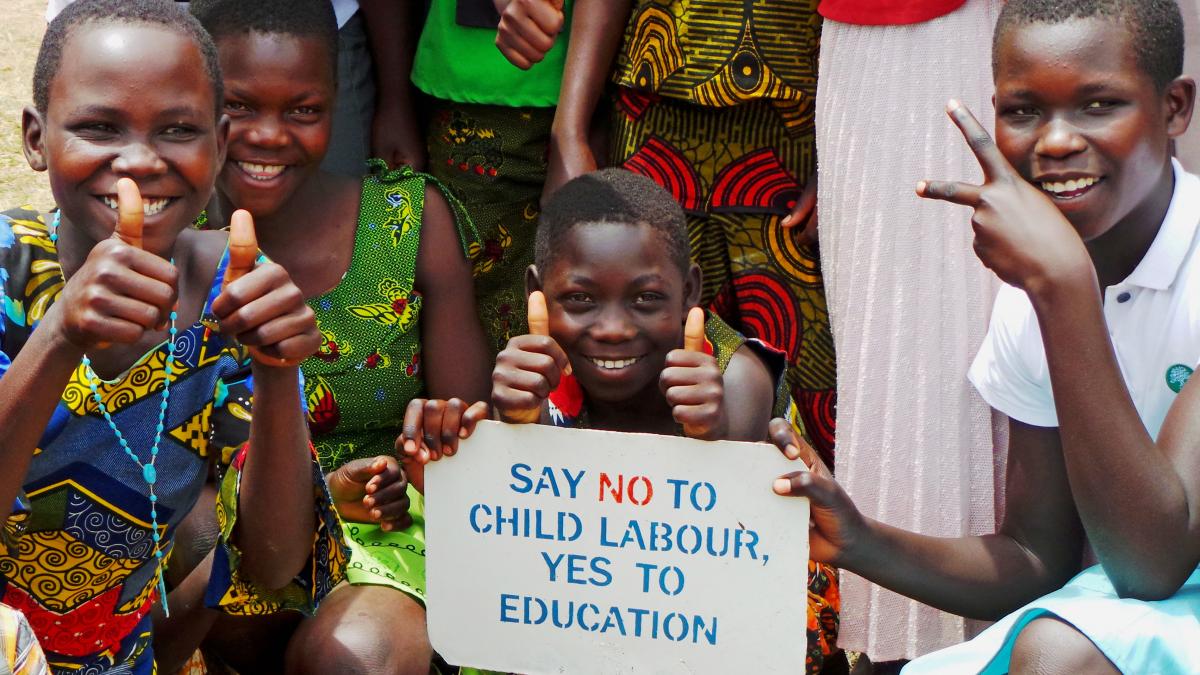‘Gold from children’s hands.’ Sounds nice, even poetic, but what kind of reaction does this statement elicit when you connect it with child labour?
It is estimated that up to two million Ugandan children have been forced into child labour, mostly through conflicts often leading to internal displacement.
On the 2017 World Day against Child Labour, the Minister of Gender, Labour and Social Development, Janat Mukwaya, noted in her speech that 70 per cent of the children involved in child labour are in agriculture (source K-FM, Uganda).
To counter these alarming statistics, Hivos has been on the frontline together with partners drawn from global and local organisations in Asia, Africa and Latin America through an umbrella coalition known as Stop Child Labour.
By championing efforts under the tag line ‘Out of Work and into School’, the Stop Child Labour Coalition has forged collaborative efforts towards creating child labour free zones. This has been made possible by the active participation of Corporate Social Responsibility (CSR) initiatives, governments, international organisations and companies – all working towards one goal: ending all forms of child labour.
In Uganda, the Coalition focused on the coffee and extractives (gold mining) sectors. Working in the West Nile in close collaboration with the Teachers Service Union (TSC) and a local NGO, a child labour free zone was established and extended to 13 villages. Similar efforts in Kasubi, Entebbe and Busia were able to take 3,705 children out of child labour.
Beyond missions of rescuing children from child labour, the coalition oversaw the creation of Village Saving Loans and Associations in various communities to provide alternative income that will secure livelihoods for many parents without stable incomes to sustain their households. This in turn went a long way towards sensitizing parents on the dangers of child labour and how to secure their children’s future.
Today, the Stop Child Labour Coalition has seen significant changes in its efforts to eliminate child labour in Uganda. None of this would have been achieved without support locally and globally. The Coalition scaled up its multi-tiered interventions that resulted in the following:
- Agreements regarding child labour with global chains that produce coffee, foot wear, natural stone and textiles in Uganda. This was made possible by signing 5 Memorandums of Understanding (MoUs) to firmly establish workplaces devoid of child labourers.
- Within these agreements, 11 international companies and 4 CSR initiatives – working with the local population – have incorporated child labour free zones in their intervention strategies.
- 9 research reports detailing the level of child labour use in the extractive (gold and natural stone), agricultural (seeds) and garment sectors.
- Engagement in multi-stakeholder and dialogue meetings with at least 80 companies and 11 CSR initiatives
- Expansive public outreach to lobby for the implementation of Child Due Diligence Laws that has reached millions of consumers and citizens through the international media
About the Stop Child Labour coalition
The Stop Child Labour Coalition is a global consortium implemented by Hivos in partnership with General Union for Education (AOb), FNV Mondiaal, the India Committee of the Netherlands (ICN), ICCO Cooperation, Kerk in Actie, Stichting Kinderpostzegels Nederland. In Uganda we work with the following local organisations: Nascent, Community Empowerment for Rural Development (CERFOD) and Uganda National Teachers Union (UNATU).




